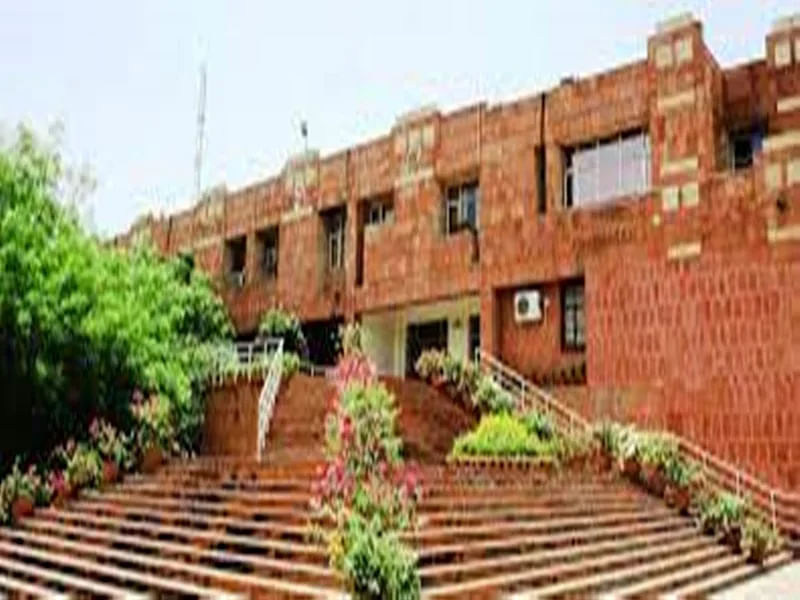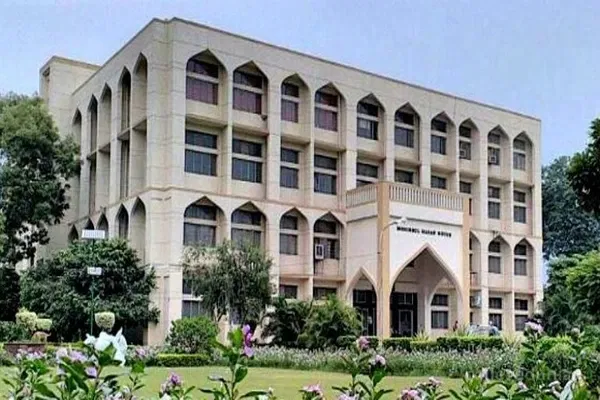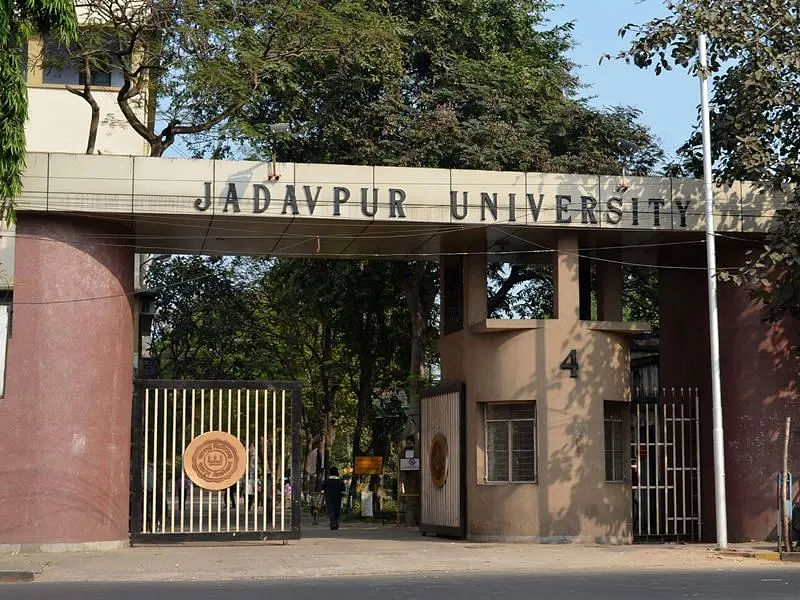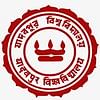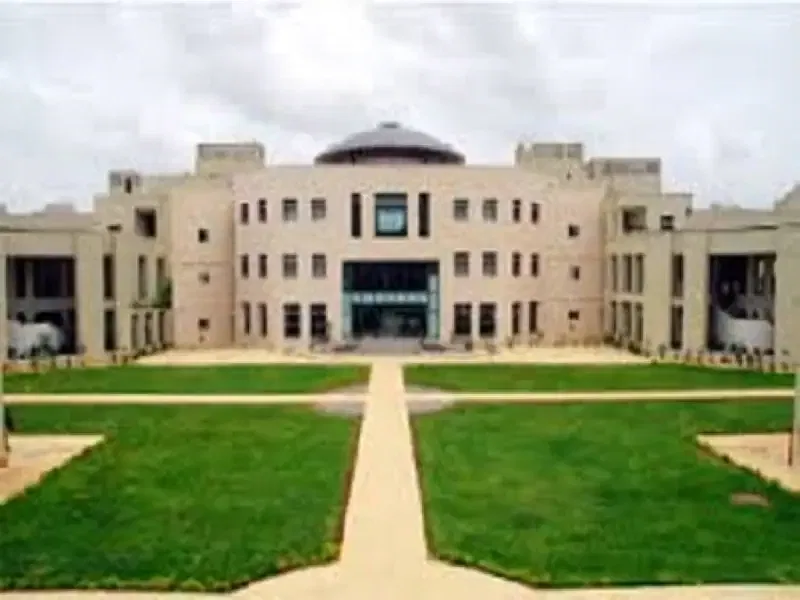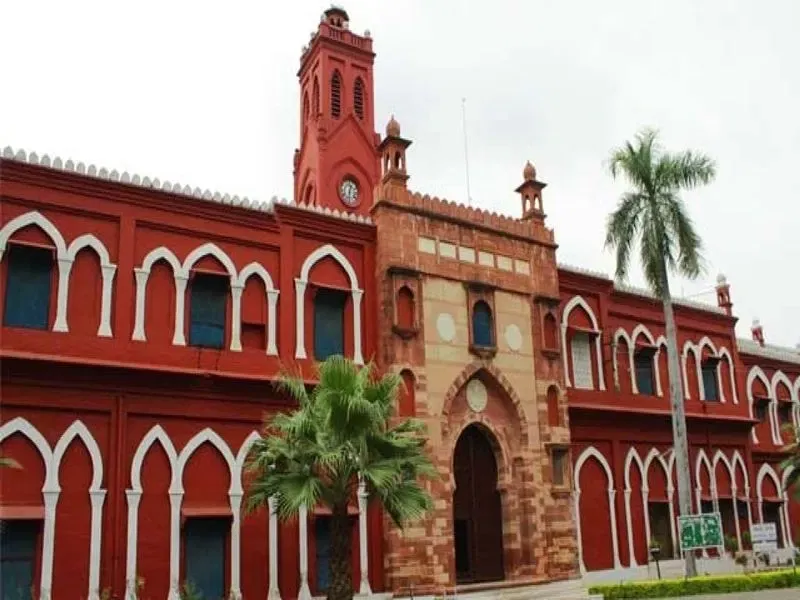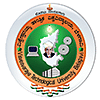MA Sanskrit

The MA in Sanskrit is a two years postgraduate course that deals with the study of Sanskrit literature and its various aspects such as ethics, philosophy, Vedic, and Sanskrit grammar. The graduates after completion of the course can work as Translators, Teachers, Sanskrit Interpreters, Typists, etc.
Table of Contents
- About MA in Sanskrit Course
- Why Choose MA in Sanskrit Course?
- MA Sanskrit Eligibility Criteria
- MA in Sanskrit Admission 2023
- Popular MA Sanskrit Entrance Exams
- MA in Sanskrit Fees Details
- Types of MA Sanskrit Courses
- Top MA in Sanskrit Colleges in India
- MA in Sanskrit Syllabus and Subjects
- Integrated MA in Sanskrit Course
- MA in Sanskrit Course Comparison
- Courses After MA in Sanskrit
- Career Options After Master of Arts in Sanskrit Course
- MA Sanskrit Salary in India
- MA Sanskrit Scholarships
- Skills to Excel as a Master of Arts in Sanskrit Graduate
MA Sanskrit Course Details
| Degree | Masters |
| Full Form | Master of Arts in Sanskrit |
| Duration | 2 Years |
| Age | The minimum age limit to enroll in the course is 20-21 years. |
| Minimum Percentage | A minimum of 50-55% marks in BA Sanskrit or any equivalent degree. |
| Average Fees | ₹4K - 1 LPA |
| Similar Options of Study | MA (Persian), MA (Ursu), MA (Bengali), MA (Malayalam) etc. |
| Average Salary | INR 2.5-5 LPA. |
| Employment Roles | Sanskrit Teacher, Online Transcriptor, Lecturer - Swasth Vritt and Shalakya Tantra, Sanskrit Typist, etc. |
| Top Recruiters | Schools, Colleges, Sanskrit Research Centres, etc |
About MA in Sanskrit Course
MA in Sanskrit full form is Master of Arts in Sanskrit. The course falls under the umbrella of the MA course, it is a master's degree that equips students with the understanding of the Sanskrit ancient language and the heritage culture associated with it. The MA in Sanskrit duration is two years.
MA in Sanskrit Admission 2023 requires students to have a minimum of 50-55% in BA Sanskrit or any equivalent higher degree. The candidate should also qualify for entrance exams such as CUET-PG, DSVEE, etc., for admission to the course. MA Sanskrit syllabus cover topics like Vedas and Upanishads, Poetry, Philosophy, etc.
MA Sanskrit graduates can work in various ranges of departments and fields such as modern interpretation departments, academics, government administrative services, yoga, etc. The average salary of a MA in Sanskrit graduate is in the range of INR 2.5-5 LPA.
Why Choose MA in Sanskrit Course?
Sanskrit is an ancient language of India that is deep-rooted in Indian culture and is still spoken in various parts of the country. The points listed below highlight why one should choose a MA in Sanskrit course:
- The course offers a diverse range of opportunities to work as a Sanskrit typist, interpreter, advisor, teacher, etc.
- The job demand for interpreters and translators in various disciplines is rising and is expected to grow by 20% between the years 2021- 2031. (Report: BLS)
- Due to increased globalization, the demand for global translation service markets including Sanskrit is expected to reach USD 46.22 Billion by the year 2028.
- The course also offers students to work in cataloging manuscripts roles that are hired in the departments of the library which handle Sanskrit manuscripts and books.
- The language service market globally is projected to expand at a CAGR of 6.6% between 2022-28, leading to higher demand for skilled language professionals in various domains.
Who Should Pursue Master of Arts in Sanskrit Course?
Below listed are points regarding who can pursue a MA Sanskrit course:
- Students interested in advanced knowledge of concepts and texts in Sanskrit Literature and Philosophy can pursue this course.
- Individuals who are from a humanities background and have a strong foundation in critical thinking skills and language can enroll in the MA Sanskrit course.
- Students who to build their careers in the field of research, education, cultural heritage, and preservation can pursue this course.
Read More About MA Sanskrit Jobs
MA Sanskrit Eligibility Criteria
The MA in Sanskrit eligibility criteria may differ from college to college but standard requirements which need to be fulfilled by the students in order to proceed with the admission procedure is mentioned below:
- The student should have passed BA Sanskrit or Hons or any equivalent degree with a minimum of 50-55% marks from a recognized university.
- Some universities/colleges also give relaxation of 5-10% marks to SC/ST/OBC or any reserved category students.
- The student should clear the entrance exams such as CUET PG, DUET, DSVV EE, etc., as required by the college.
- The minimum age limit to enroll in the course is 20-21 years.
MA in Sanskrit Admission 2023
The standard MA Sanskrit admission details followed by colleges and universities are listed below step-wise:
- Step 1: The student should fulfill the minimum eligibility requirements for the course to proceed further.
- Step 2: The students need to complete the application form registration process either online or by going to a college campus.
- Step 3: Further, as per the college requirement students should clear the entrance exam cut-off for admission.
- Step 4: Once the candidate application is assessed, counseling or GD/Interview process is conducted by the college.
- Step 5: After the merit list is rolled out by the college student needs to pay the fees and submit the required documents such as 10th/12th, graduation mark sheets, identity proof, etc.
Popular MA Sanskrit Entrance Exams
MA Sanskrit admission includes entrance exams at national, state, and institute levels. The popular MA Sanskrit entrance exams are listed below, along with application details:
|
MA in Sanskrit Entrance Exam |
Registration Details |
| CUET-PG | Application Form |
| DUET | Application Form |
| Pune University Entrance Exam | Application Form |
| DSVV Entrance Exam | Application Form |
MA in Sanskrit Fees Details
The average MA in Sanskrit course fees are in the range of INR 4,000- 1 LPA. The table below contains tuition, miscellaneous and admission fees for various colleges offering the course:
|
Sl.No |
College Name |
Tuition Fees |
Admission Fees |
Miscellaneous Fees |
|
1 |
Manipal Academy of Higher Education | INR 19,000 PA | INR 5,000 | INR 6,000 PA |
|
2 |
Panjab University | INR 5,755 PA | INR 1,000 | - |
|
3 |
Tilak Maharashtra Vidyapeeth | INR 15,000 PA | INR 1,500 | INR 2,000 PA |
|
4 |
Chinmaya Vishwa Vidyapeeth | INR 1.10 LPA | - | INR 3,500 PA |
Types of MA Sanskrit Courses
MA Sanskrit courses can be pursued full-time, part-time, and through distance education from prominent colleges in India. Below mentioned is the MA Sanskrit course details:
|
Type |
MA in Sanskrit Eligibility |
MA in Sanskrit Duration |
|
M.A in Sanskrit Full Time |
Should have cleared bachelor's degree with a minimum of 50-55% marks +Entrance Exam |
2 Years |
|
M.A in Sanskrit Part-Time |
Should have cleared bachelor's degree with a minimum of 50-55% marks |
2 Years |
|
Distance M.A in Sanskrit |
Should have cleared bachelor's degree with a minimum of 45-50% marks |
2-4 Years |
MA in Sanskrit Distance Education Course
Below listed are points regarding MA Sanskrit distance education:
- The distance MA Sanskrit course can be pursued from colleges like Utkal University, Acharya Nagarjuna University, IGNOU, DUSOL, etc.
- The course fees range between INR 3,300- 10,000 PA.
- The duration of the course can be maximum extended to 4 years depending on student course completion.
- There is no upper age limit to enroll in the course.
Top MA in Sanskrit Colleges in India
The MA in Sanskrit course is offered by various renowned colleges in India and the candidate can get admission based on merit or entrance exam scores. The top colleges in India offering a MA in Sanskrit course are shown in the table below along with their average tuition fees:
|
Sl.No |
College Name |
Average MA in Sanskrit Fees |
|
1 |
SNDT Women's University | INR 13,355 PA |
|
2 |
RKMVERI College | INR 10,000 PA |
|
3 |
Chinmaya Vishwa Vidyapeeth | INR 1.10 LPA |
|
4 |
National Sanskrit University | - |
|
5 |
DSVV College | INR 46,000 PA |
|
6 |
Jamia Milia Islamia University | INR 12,343 PA |
|
7 |
Manipal Academy of Higher Education | INR 19,000 PA |
|
8 |
Singhania University | INR 10,000 PA |
|
9 |
Somiya VidyaVihar University | - |
|
10 |
Amity University | INR 21,000 PA |
Top MA Sanskrit Colleges by City
|
MA in Sanskrit Colleges in Mumbai |
MA in Sanskrit Colleges in Ahmedabad |
|
MA in Sanskrit Colleges in Pune |
MA in Sanskrit Colleges in Chennai |
|
MA in Sanskrit Colleges in Indore |
MA in Sanskrit Colleges in Kochi |
|
MA in Sanskrit Colleges in Nashik |
MA in Sanskrit Colleges in Bangalore |
|
MA in Sanskrit Colleges in Kolkata |
MA in Sanskrit Colleges in Lucknow |
|
MA in Sanskrit Colleges in Nagpur |
MA in Sanskrit Colleges in Bhopal |
Top MA in Sanskrit Colleges by State
|
MA in Sanskrit Colleges in Andra Pradesh |
MA in Sanskrit Colleges in Gujarat |
|
MA in Sanskrit Colleges in Odisha |
MA in Sanskrit Colleges in Kerala |
|
MA in Sanskrit Colleges in Karnataka |
M.A in Sanskrit Colleges in Bihar |
|
MA in Sanskrit Colleges in Rajasthan |
MA in Sanskrit Colleges in Uttar Pradesh |
|
MA in Sanskrit Colleges in Chandigarh |
MA in Sanskrit Colleges in Punjab |
|
MA in Sanskrit Colleges in Maharashtra |
MA in Sanskrit Colleges in Tamil Nadu |
MA in Sanskrit Syllabus and Subjects
The MA Sanskrit syllabus and subjects are designed with the objective of training the students to gain knowledge in Vedic and Sanskrit literature. The program consists of both core and elective papers. Listed below are a few general MA Sanskrit subjects in the course:
- Sanskrit Philology
- History of Classical Sanskrit Literature
- Nirkut Aur Vadik Vyakaran
- Bhasa Pariccheda
- Darsana
- Patanjali’s Mahabhasya
- Grammar and Linguistics
Read More About MA Sanskrit Subject & Syllabus
Integrated MA in Sanskrit Course
Students can opt for BA+MA in Sanskrit after completion of 10+2 (high school degree) with a minimum of 50% marks. The duration of the course is five years. There are various colleges in India that offer integrated MA Sanskrit courses such as the University of Hyderabad, RKVERI college, etc.
MA in Sanskrit Course Comparison
MA in Sanskrit offers students the opportunity to work as content writers, translators, interpreters, etc., similar opportunities are also provided by various other courses in different domains. Below given is the comparison of the M.A Sanskrit course with other courses:
MA Sanskrit vs MA Hindi
The table below showcases the differences between MA in Sanskrit and MA in Hindi:
|
Course |
MA Sanskrit |
MA Hindi |
|
Full Form |
Master of Arts in Sanskrit |
Master of Arts in Hindi |
|
Stream |
Arts and Humanities |
Arts and Humanities |
|
Course Duration |
2 years |
2 years |
|
Eligibility |
BA Sanskrit with a minimum of 50-55% aggregate |
BA Hindi with a minimum of 50-55% aggregate |
|
Entrance Exams |
CUET-PG, BHU PET |
CUET-PG, MU OET |
|
Top Colleges |
Delhi University, Mumbai University |
Delhi University, BHU, Osmania University |
|
Fees |
INR 4,000-1 LPA. |
INR 10,000-60,000 PA |
Read More: MA Hindi
Courses After MA in Sanskrit
Students after completing the Sanskrit MA course can enroll in various higher/masters in Sanskrit courses and advanced-level certifications to improve their skill sets and domain knowledge. Listed below are some of the popular higher education options available for students:
- M.Phil
- Ph.D. in Sanskrit
- Certification Course in Comparative Religious Studies
- Certification Course in Cultural Heritage Management
Career Options After Master of Arts in Sanskrit Course
The career options for MA in Sanskrit graduates are vast in both the private and public sectors as the demand for language-specialized graduates has increased with more cross-cultural movements and globalization. Some of the career options after MA in Sanskrit are:
- Sanskrit Teacher
- Sanskrit Translator and Interpreter
- Content Writer
- Manuscript Curator
- Home Tutor
- Sanskrit Typist
- Researcher
- Subject Matter Experts/Consultants
Read More About MA Sanskrit Jobs
MA Sanskrit Salary in India
The average M.A in Sanskrit graduate salary in India is around INR 2.5-5 LPA [Source: Payscale]. The salary varies based on the job demand, experience, skills, and area a candidate works in such as cultural institutions, research centers, schools, government departments, etc.
Read More About MA Sanskrit Salary
MA Sanskrit Scholarships
There are various scholarships available to students who want to pursue MA courses in different specializations offered by private institutes and government initiatives. Below is a list of a few scholarships available to students:
- NSP Post Matric Scholarships Scheme for Minorities
- Sterling and Wilson Solar Scholarship
- Post-Matric Scholarships for Students with Disabilities
- NEC Merit Scholarship
- Rashtriya Sanskrit Scholarship Scheme
- Central Sanskrit University Scholarship
- Central Sector Scheme of Scholarships for College and University Students
- Post Matric Scholarship for Minorities (Karnataka)
- Post-Matric UP Scholarship
- Post-Matric Scholarships for the Students of Minority Communities
- Swami Vivekananda Scholarship
Read More: MA Scholarships
Skills to Excel as a Master of Arts in Sanskrit Graduate
While studying the M.A Sanskrit program, the graduates get proficiency in the Sanskrit language and research-oriented focus on linguistics, didactics, and philosophy. Also, the students must be good at reading and writing skills. Some of the skills that graduates develop during the course are:
- Communication Skills
- Networking and Collaboration
- Philological Skills
- Interpretive Skills
- Critical Thinking Skills
- Proficiency in Writing
- Time Management Skills
Top MA Sanskrit Colleges
Top Arts Entrance Exams
MA Sanskrit Fee Structure
FAQs on MA Sanskrit
Q: What is MA Sanskrit course duration?
Q: Who can pursue MA in Sanskrit course?
Q: What are the important MA Sanskrit subjects in the first year?
Q: What is the average MA Sanskrit graduate salary?
Q: What jobs are available after MA in Sanskrit course?
Q: What is the age limit to enroll in the MA Sanskrit course?
Q: What is the fees for MA in Sanskrit from IGNOU?
